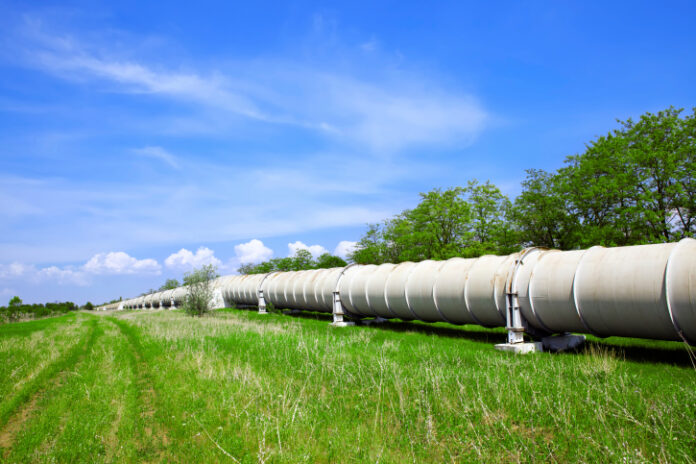Two Minnesota regulatory agencies approved environmental permits for a replacement oil pipeline across the northern part of the state.
Enbridge’s $2.6 billion, 340-mile pipeline will replace the company’s aging and deteriorating Line 3, which transports heavy Canadian oil to Enbridge’s terminal in Superior, Wisconsin.
As approved, the pipeline is expected to employ more than 4,000 workers at its peak of construction, making it one of the largest construction projects in Minnesota in recent years. The pipeline’s route crosses 212 streams and has the potential to impact 700 acres of wetlands in Minnesota.
Multiple Agencies Approve Pipeline
In response to corrosion in its existing pipeline, Enbridge reduced the flow of oil through it to 50 percent of its capacity in order to avoid leaks. Enbridge’s replacement pipeline has been undergoing various reviews for six years, needing approvals from the Minnesota Public Utility Commission (MPUC), the state’s primary pipeline regulator, the Minnesota Pollution Control Agency (MPCA), and the Department of Natural Resources (MDNR).
MPUC approved the Enbridge pipeline in February 2020, before the COVID-19 pandemic hit.
MPUC’s approval process examined the pipeline’s potential impact on climate change, as well as the threat of oil pollution from the existing deteriorating pipeline compared to its proposed replacement.
Water Quality the Main Concern
MPCA and MDNR reviewed the potential impacts of the new pipeline on water quality, wetlands, and wildlife. The two agencies granted their permits on November 12.
MPCA said its permit review was the most thorough it had ever undertaken, resulting in the most stringent conditions for any pipeline through the state.
The MPCA established 34 specific conditions on Enbridge’s pipeline construction, including prohibiting construction in or near wild rice waters from April 1 to July 15, and requiring Enbridge to hire 24 independent monitors who will report on pipeline progress and any problems they detect directly to MPCA. MPCA’s permit also requires extensive restoration and mitigation for any streams or wetlands Enbridge disturbs during pipeline construction.
“The MPCA has used sound science and thorough analysis to ensure that the necessary safeguards are in place to protect Minnesota’s waters,” said Laura Bishop, a commissioner with MPCA, in a statement.
Pipeline Workers Pleased
State regulators’ approval of the project was good news for pipeline workers in the aftermath of the economic shutdown resulting from the Coronavirus, Kevin Pranis, Minnesota marketing manager for the Laborers Union, told the Minneapolis Star Tribune.
“We expect the coming year to be really difficult for construction, possibly as bad as the Great Recession,” Pranis said. “It’s a huge day for us because it means this project has cleared Minnesota’s rigorous environmental standards.”
Federal Permit Still Needed
Before construction can begin, the U.S. Army Corps of Engineers must still grant its own environmental permit. The Army Corps’ permit examines the same water quality and wetlands issues covered by MPCA’s permit.
The Star Tribune reports the Corps has completed most of its work with Craig Jarnot, chief of the Army Corps’ North Branch regulatory division, saying the agency expects to have its work done “as soon as possible.” Enbridge says it expects to receive the Army Corps’ permit within the next month, allowing it to begin construction sometime in December.
“We have every expectation our members will be building this project in December,” Pranis said.


























